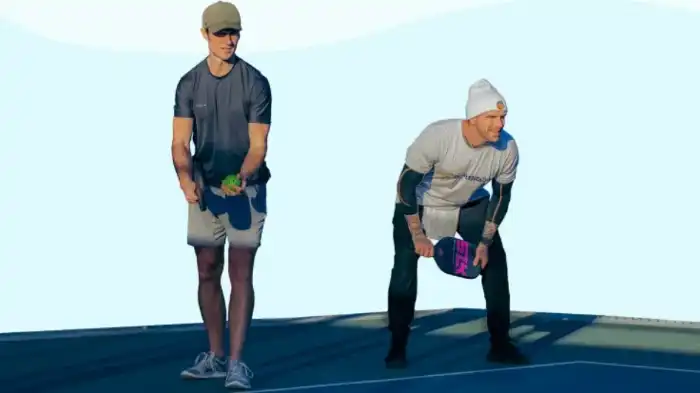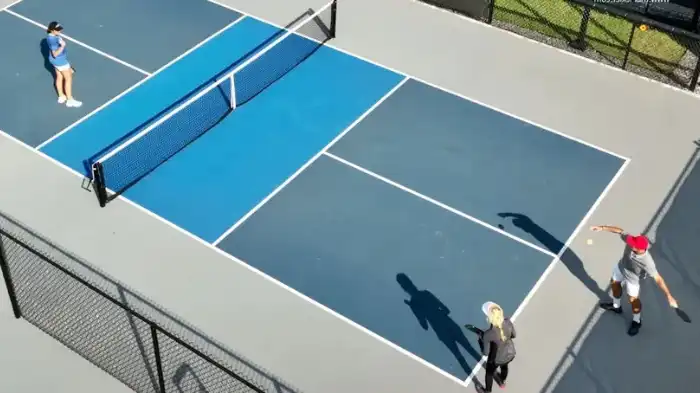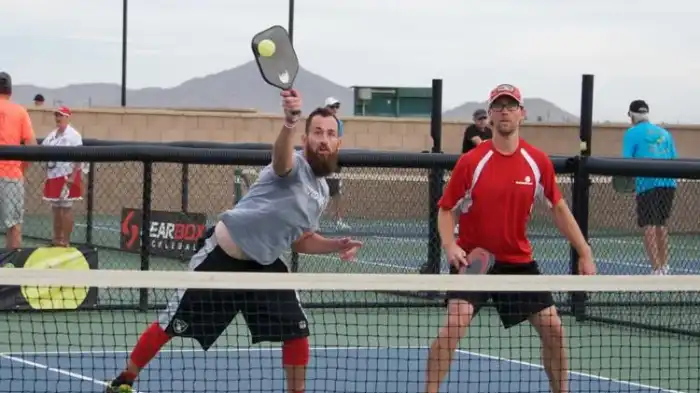Pickleball is a fast-growing sport that combines elements of tennis, badminton, and table tennis. It is played with a paddle and a small plastic ball on a court that resembles a smaller version of a tennis court. One of the key strategies in pickleball is stacking, which involves positioning players in a specific order to take advantage of their strengths and maximize their chances of winning. In this guide, we will explain stacking in pickleball and provide you with some essential tips for implementing stacking in pickleball.
What is Stacking?
Stacking is a technique used in doubles pickleball to optimize court coverage and take advantage of each player’s skills. It involves positioning the players in a specific order based on their strengths. Typically, the stronger player is positioned in the backhand, while the weaker player is positioned in the forehand. The goal is to create an advantageous court position that allows the stronger player to hit more shots and cover a larger area of the court.

The Basics of Stacking
To master the art of stacking effectively in pickleball, it is important to understand the basics, which are given below:
Backhand vs. Forehand: In general, the stronger player should be placed in the backhand position. This player will have the advantage of hitting their stronger shots and covering a larger area of the court. The weaker player should be positioned in the forehand to provide support and cover the shots that may be difficult for the stronger player.
Switching Positions: Throughout the game, it may be beneficial to switch positions to throw off your opponents and take advantage of different shot opportunities. This can be done during a timeout or when switching sides of the court. However, make sure to communicate with your partner before making any switches to avoid confusion.
Understanding Shot Placement: Mastering shot placement is crucial in pickleball. By understanding the strengths and weaknesses of your opponents, you can strategically place shots to exploit their vulnerabilities. Work together with your partner to coordinate shot placement and create opportunities for winning points.
Tips for Implementing Stacking in Pickleball
Following are the tips for implementing stacking in pickleball:
Assess the Capabilities of Players
Before deciding on the stacking order, it is crucial to assess the skills and capabilities of each player. Determine who has a stronger backhand or forehand and who is more comfortable playing in the kitchen or at the baseline. This assessment will help you to determine the optimal order for stacking.
Communication
Effective communication is vital in pickleball, particularly when utilizing the stacking strategy. Make sure you and your partner are in sync and fully grasp the stacking sequence to prevent any confusion during the game and ensure seamless teamwork.

Adapting to the Opponent
It is important to be flexible with your stacking strategy and adapt to the strengths and weaknesses of your opponents. Observe their shot preferences and adjust the stacking order accordingly. This adaptability will give you a competitive edge and make it harder for your opponents to predict your moves.
Frequently Asked Questions
Stacking is a strategic positioning technique where partners switch sides of the court during gameplay to gain a competitive advantage. It allows players to utilize their dominant hand to cover more court area and maximize their shot selection, especially during dinking exchanges. Mastering stacking is crucial as it enhances court coverage, improves shot placement, and promotes stronger teamwork.
Switching positions in stacking should be done at specific moments during the game: after the return of serve or when you’re in a more advantageous position. It’s essential to communicate clearly with your partner to ensure a smooth transition. Switching too early or too frequently can disrupt the flow of the game, resulting in confusion and missed opportunities.
One prevalent mistake in stacking is failing to communicate effectively with your partner. Coordination and clear signals are essential to ensure a seamless switch and avoid collisions. Additionally, staying mindful of the game’s pace and rhythm helps prevent premature or unnecessary position changes that may result in misplays. Regular practice and good communication can help avoid these common pitfalls.
Mastering the art of stacking enables players to cover more court areas with their dominant hand, allowing for better control and shot selection. By arranging strategically, players can take advantage of their strong shots, such as cross-court drives or volleys. Additionally, stacking improves court coverage by allocating the most skilled player to the appropriate side, making it difficult for opponents to exploit weak spots and increasing overall defensive capabilities.
While stacking can be beneficial for most players, it may not suit all playing styles or skill levels. It especially compliments players with a strong hand who can generate more power or control. However, beginners who are still getting comfortable with the basics of pickleball may find it more challenging to execute effectively. It is important to assess your skill level, discuss with your partner, and practice until you feel confident and coordinated enough to incorporate stacking into your gameplay.
Conclusion
Stacking in pickleball is a valuable strategy in pickleball that can significantly improve your chances of winning. By assessing player capabilities, communicating effectively, and adapting to your opponents, you can implement stacking in pickleball successfully. Remember to always practice and refine your skills to truly master the art of stacking in pickleball. Incorporate these techniques into your gameplay and enjoy the benefits of a well-executed stacking strategy.

